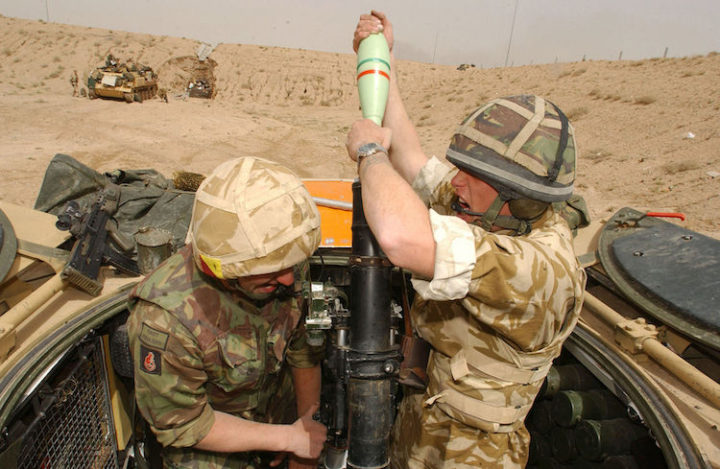Reacting to the Report of the Iraq Inquiry headed by Sir John Chilcot, published early July, the 1995 Nobel Peace Prize winning Pugwash Conferences on Science and World Affairs have stressed the critical importance of heeding the lessons of the inquiry.
“In a world where nine countries possess over 15,000 nuclear warheads and global military expenditure is at a staggering US $1676 billion, while terrorism fuelled by extremist ideologies adds to the toxic mix of the traditional causes of war, the folly of not heeding the lessons of Chilcot will be catastrophic,” the Pugwash Conferences’ leaders warn.
The statement released on July 12 is signed by Jayantha Dhanapala, President, Paolo Cotta-Ramusino, Secretary General, Saideh Lotfian, Chair, Pugwash Council, Steve Miller, Chair, Executive Committee, and Tatsujiro Suzuki, Pugwash Executive Committee.
“The bedrock document anchoring the 1995 Nobel Peace Prize winning Pugwash Conferences on Science and World Affairs – the London Manifesto of July 1955 co-signed by our founder President Bertrand Russell and Albert Einstein – advocated the abolition of war and nuclear weapons,” the signatories say.
The London Manifesto said: “We have to learn to think in a new way. We have to learn to ask ourselves, not what steps can be taken to give military victory to whatever group we prefer, for there no longer are such steps; the question we have to ask ourselves is: what steps can be taken to prevent a military contest of which the issue must be disastrous to all parties?”
This built upon the specific prohibition in the UN Charter of the “the threat or use of force against the territorial integrity or political independence of any state” (Article 2:4), notes the July 12 statement, which continues:
The July 6 UK Report of the Iraq Inquiry by Sir John Chilcot and others into the invasion of Iraq in 2003 by the US, UK and others raises this and other fundamental questions for the governments and citizens of the world to ponder over collectively, note Pugwash Conferences.
“While being a commendable, if woefully belated, accountability mechanism on the abuse of power in a democracy, the report uncovers the reckless pursuit of war as a subjective and self-interested means of achieving regime change on the pretext that weapons of mass destruction existed when the objective and scientific process of international verification remained incomplete,” says the statement.
It adds: “The invasion of Iraq and its aftermath contributed to the sectarian conflict – not just in Iraq but in the entire region – with tragic consequences for the people; and the unstoppable exodus of displaced persons and refugees to other regions of the world.”
While the Report does not come to any conclusions on the legality of the invasion despite the overwhelming global consensus on that issue, Pugwash Conferences say, some of the lessons that can be learnt are:
– the inadmissibility of regime change as a unilateral act of any country or group of countries in a subjective judgment of threats to international peace and security;
– the indispensable priority for peaceful settlement of disputes and diplomatic negotiations as we saw vindicated in the 2015 Joint Comprehensive Plan of Action (JCPOA) which resolved the Iranian nuclear dispute with the P5 plus I and a path which Pugwash is pursuing actively with regard to Afghanistan;
– the vital importance of international verification regimes such as those implemented by The Hague-based Chemical Weapons Convention Organisation, which eliminated chemical weapons in Syria and the Vienna-based Comprehensive Nuclear Test Ban Treaty Provisional Technical Secretariat (CTBTO), which has successfully detected the nuclear weapon tests conducted by the Democratic People’s Republic of Korea.
The 150-page executive summary of the Chilcot Report recalls: “In 2003, for the first time since the Second World War, the United Kingdom took part in an opposed invasion and full-scale occupation of a sovereign State – Iraq. Cabinet decided on 17 March to join the US‑led invasion of Iraq, assuming there was no last‑minute capitulation by Saddam Hussein. That decision was ratified by Parliament the next day and implemented the night after that.”
Note: The original statement is available on Pugwash website.






